QuestionHi,
We have a 6 month old miniature poodle. She is generally a good dog, but she has a terrible problem with biting. It is not aggressive, but playful...however, she does it even when no one is trying to play with her. I have two small children (18 mos. and 4 years) and our dog is drawing blood on them on a daily basis. She even jumps up and knocks over my toddler, then tries to bite him while he's down. Also, when my husband and I walk through the house, she jumps up and bites our hands. It sounds silly, but we are all covered in cuts all the time and it is becoming a serious issue. She was meant to be a "friend" to my kids, but I cannot let her keep hurting them like this. What can I do?
AnswerBITING BEHAVIORS
First off, dogs do not have hands. So their method of learning and exploring is to use their mouths. This is normal DOG behavior. What we do not want to see is a dog that bites out of fear, or a puppy that gets too rough with their play and hurts you.
For puppies------ Remember playing and play fighting are ways of learning. With this comes biting. Its simply a matter of training a puppy to be gentle. A mother or alpha dog will put a puppy into their place when they bite too hard or get carried away.
I have found that a sharp yip (just like a puppy would do when hurt) by you when a puppy bites too hard will stop the behavior immediately. This is a language the puppy understands.
Should this not work for you then you must correct the puppy a little more strongly. Give the puppy a sharp NO and turn away from the puppy and ignore them. This too is a language a puppy understands. The mother or alpha dog will walk away and not play with the dog when they have gotten out of hand. This lets puppy know they have done something that is not acceptable. If you need to be a little more hard core to stop the puppy's biting then give them a chuff or tap under the chin (you do not want to hurt the puppy so you must be gentle but firm). A puppy's center of control is in their head. By chuffing them under the chin you are taking that control away from them.
For fear bitters------- This issues is actually more of a behavioral issue than a puppy biting. This means that the puppy is frightened and the only way he knows to respond is by biting. This is not to be mistaken for an act of aggression as it is not. This issue is because of improper socialization during those all important first 8 weeks. This is a behavior that will take longer to deal with and you must go slow as to not frighten the animal. Slowly get the dog or puppy used to being with you. Give them treats. Bribery is great and does work! If there is a specific item that causes the fear biting then you need to work with that item very slowly to get the dog use to it and unafraid. Say for instance your dog fear bites when you go to pick them up. GO very slow in this case. Sit down on the floor on their level (this will cause a lot of the fright to leave as you are not towering over them) and coax them to you. I would recommend putting a long training leash on your dog or puppy so that you can have control should the need arise. This is for the safety of everyone involved also. Once the dog takes a step toward you place a treat on the floor for them. Do not try to make them take it from your hand or toss it at them as they will retreat most likely in fear. Get a treat that is really enticing such as a piece of hot dog or bacon or liver. If they make another step toward you reward that and so on and so forth until they come up to you. If you can not get them to do this on their own then resort to actually using the lead to get the dog to make the steps toward you. Once the dog or puppy finds that you are not a threat to him you will find things much easier. You can take the same steps towards working with dogs scared of cars, wheel-chairs, loud noises, crates, or even the lead itself. You can see that it will take some work but it will be very rewarding in the end with a dog that loves and trusts you.

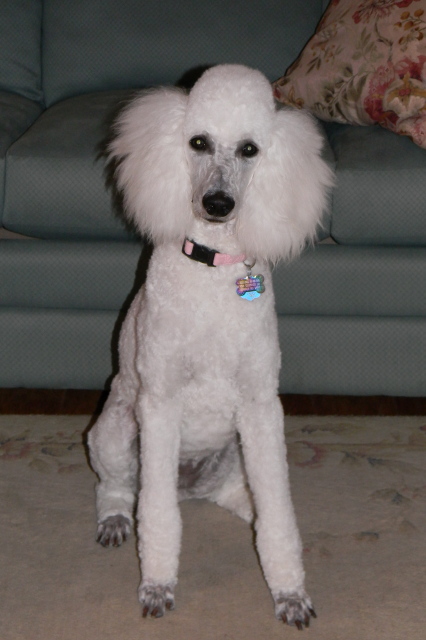 skittish about new things
Question
female standard poodl
We got our female stand
skittish about new things
Question
female standard poodl
We got our female stand
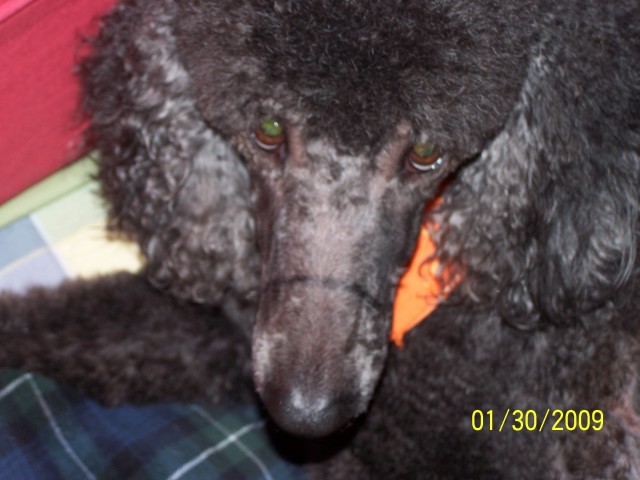 Stripe on nose
QuestionStripe on Perrys nose
QUESTION: Hello Ki
Stripe on nose
QuestionStripe on Perrys nose
QUESTION: Hello Ki
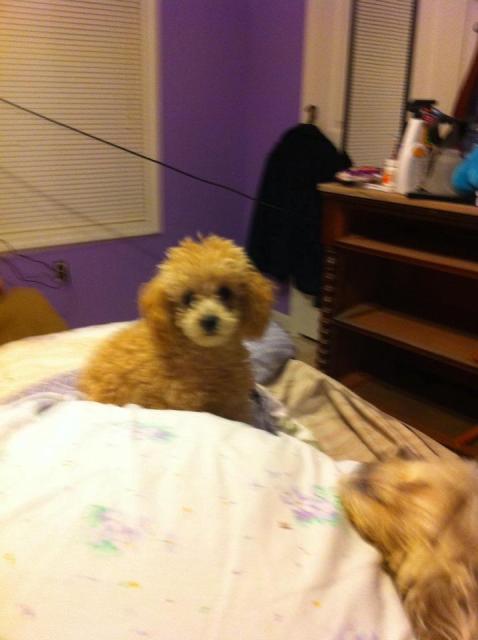 hey kim! my pups are grown but i have a ?
Questionrascal
QUESTION: Hey kim, my puppies ha
hey kim! my pups are grown but i have a ?
Questionrascal
QUESTION: Hey kim, my puppies ha
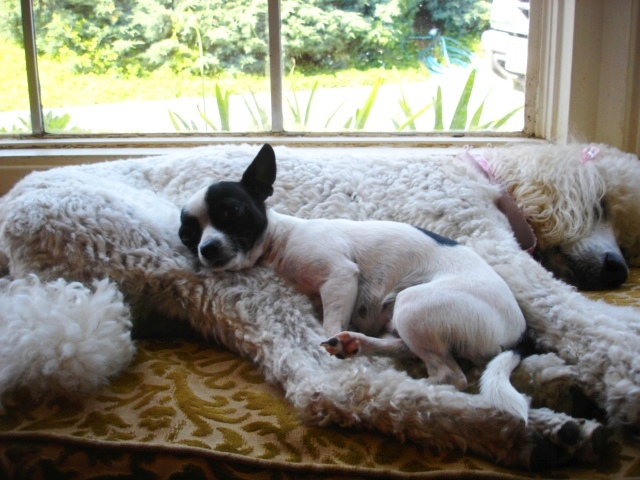 Another question about my standard poodle
QuestionIvory the Standard and
QUESTION: After o
Another question about my standard poodle
QuestionIvory the Standard and
QUESTION: After o
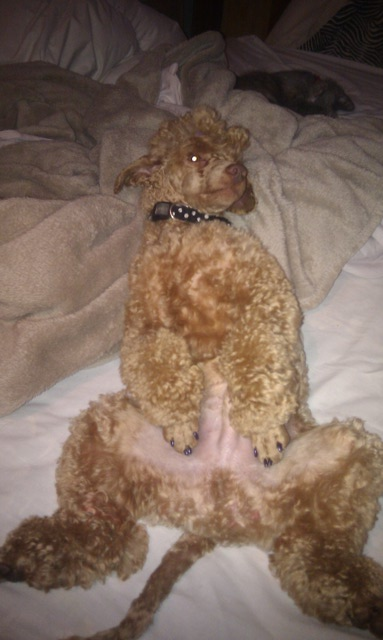 pogo poodle with seperation anxiety
Question
Banner
Hi, I have a 15 month old male d
pogo poodle with seperation anxiety
Question
Banner
Hi, I have a 15 month old male d